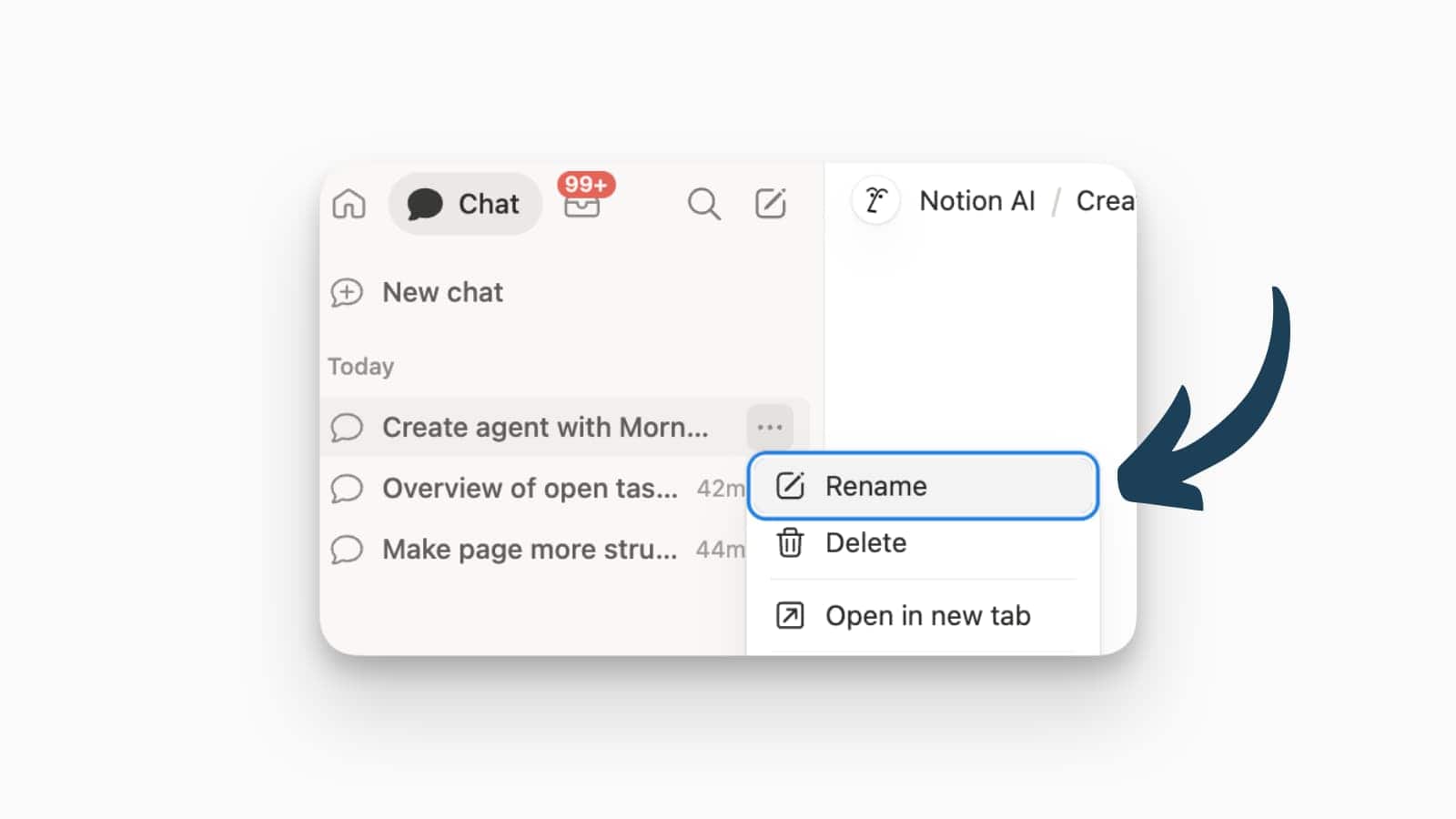Ever wondered what it would be like to work as a Notion Consultant? Meet Sergey who joined us for half a year on our mission to build Europe’s Nr. 1 Notion Consultancy.
My internship search began like many others: I was simply looking for something to add to my CV. I applied to the “big four” firms, but after just one interview with KPMG, I knew it wasn’t for me.
My psychology background told me I’d be overqualified for a role that would likely involve months of manual tasks or fast, not-so-scientific research. The thought of spending my time there was almost “painful”, and although the interview lasted over an hour, my motivation was gone long before it ended.
To be honest, my luck was that they didn’t offer me the position in the end.
It forced me to think outside the “CV box” and ask myself different questions: “What would I really like to learn? What skills do I want to acquire?”
This led me to a new question: “Who do I know who could help me?”
I thought of a curly-haired Notion “nerd” I’d met just once after a Notion event in Berlin: Matthias.
We had talked for only five minutes, but his presentation was captivating, and I learned he “does Notion professionally”. Almost a year later, while wrapping up my Erasmus semester in Italy, I sent him my CV and a motivational letter.
Now that I really know him, I assume he didn’t even open my CV because he doesn’t care about such things.
He knew I was a Notion campus leader and German-speaking, and my biggest selling point was probably that I was ready to start tomorrow.
I had few expenses and responsibilities, which allowed me to work committedly without asking for much beyond the experience itself. I also asked at the right time, as he was looking for a German-speaking person, and the team at that point consisted only of him and Jill.
I remember registering my “Kleingewerbe” in Germany and organizing Matthias’s Notion templates while sipping coffee in a hostel in Genova.
Dreams do come true like that.
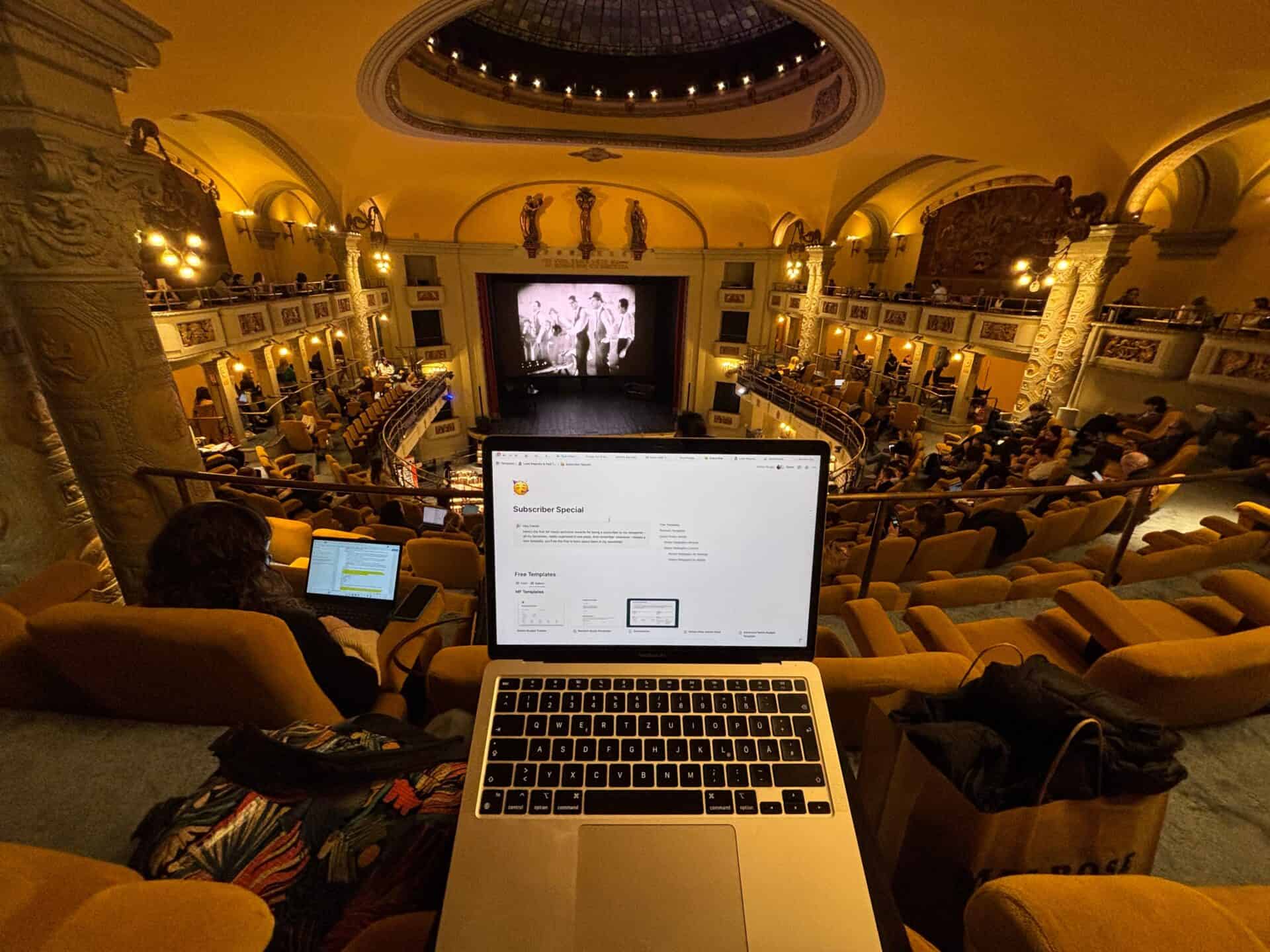
Getting to Know the Team
If you’re here, you already know about Matthias. He’s a Notion ultra – the “Brad Pitt or Beyoncé of the Notion universe”, as I once heard someone say. But he’s also incredibly kind, hospitable, and supportive. His passion and drive are infectious and exactly what drove me throughout my internship.
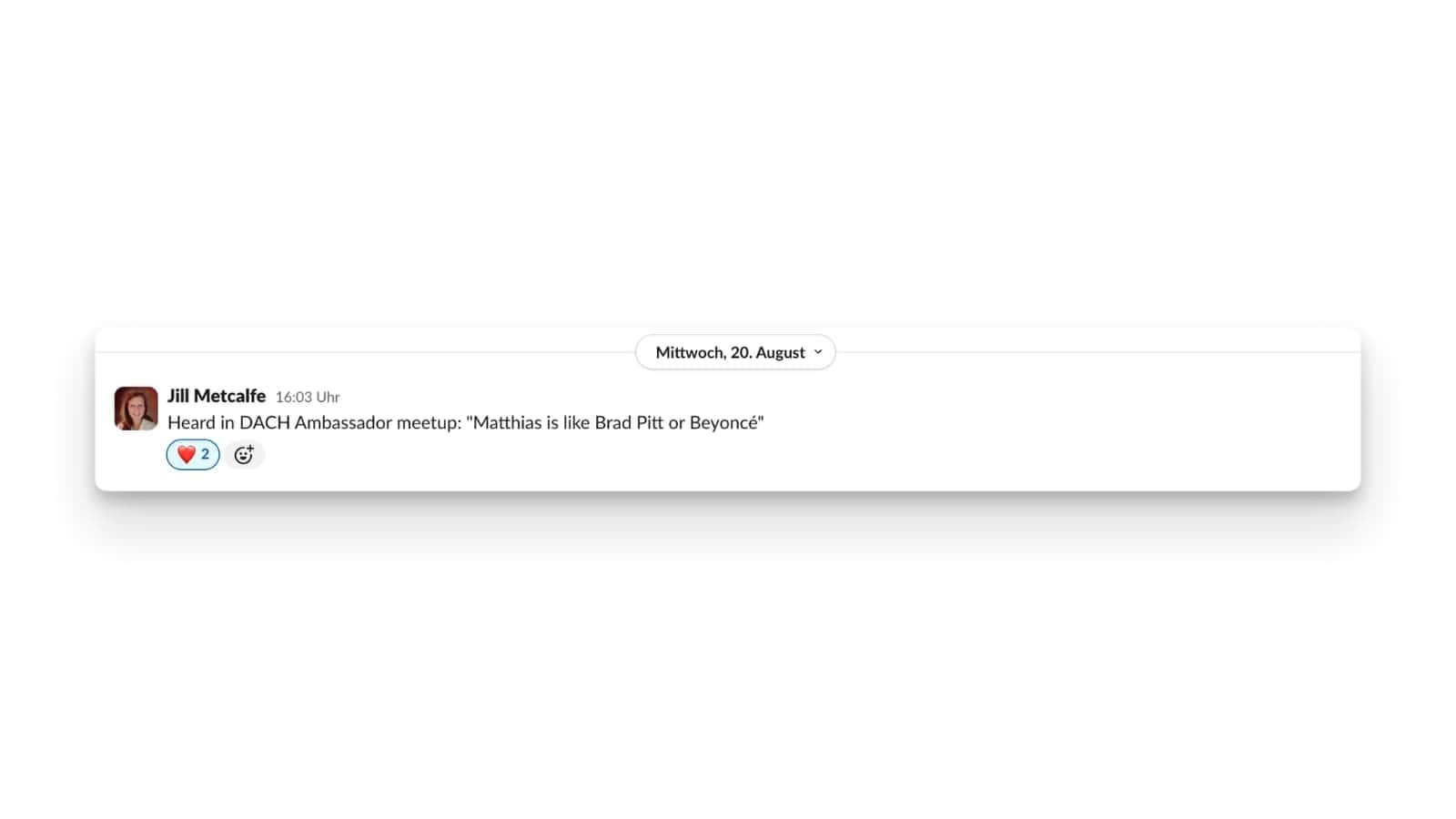
Of course, I’m not new to Notion, but I wasn’t an expert in Notion formulas. Nor did I really understand APIs. I built my first automation just to prove I could do it, not because I saw the benefit.
In that sense, I still am not like Matthias and Jill. They are nerds through and through, who build for the sake of it because their curiosity drives them.
And then there is Jill. Jill is AMAZING!
She is the kind of person who recommends a computer mouse but then adds a remark about getting a different cable mouse if you want to play Minecraft occasionally.
Jill has also been jailbreaking Wiis for her kids. Yes, she’s also a mother.
And she’s a total badass:
All her life she worked as a translator, which, as a profession, has became redundant with AI.
But instead of weeping about her lifelong source of income evaporating just like that, she sits down post-client work and takes advice from her “enemy” and life coach: ChatGPT.
Now, she’s using AI to make a living again.
Jill is also the kind of person that would build an automation to send an automated email back to the originator if he/she forwarded an invoice as a JPEG instead of a PDF and would attach a link to the 21st century.
Dry British Humour. I love it.
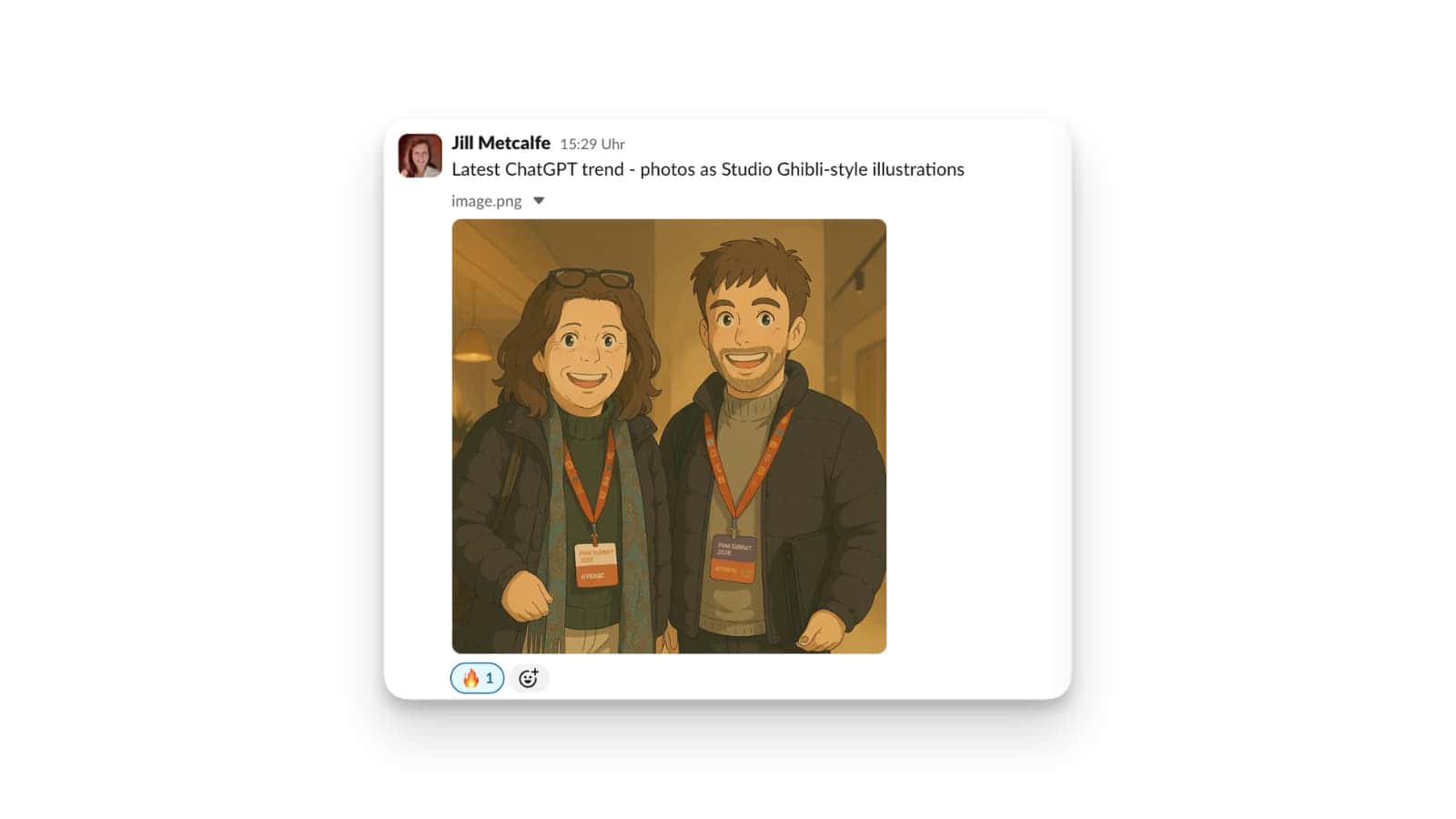
What I really like about Matthias is that he values us as co-workers. We were too few to have a true culture, but there was definitely something like that and it was growing.
It was a pleasure to finally nerd out about tools, blogs that inspired us, too many self-help books that we read and it didn’t surprise me that they were also big fans of The Bear.
To me, it felt like we grew up together, spent the pandemic similarly, and shared the same YouTube account.
Actually though, we’re three different generations, at very different points in life.
My Background: From University to Professional
I’m Sergey, and a former Notion Campus Leader in Lüneburg. Having experienced life in several cities, I can’t overstate how important this place was to me.
Leuphana University’s bottom-up, activist student engagement and incredible support truly allowed me to think outside the box—something I never did growing up in my small hometown.
At Leuphana, students could book spaces to create, discuss, and work. When I became a Notion Campus Leader, I hosted nearly all my events there, and my most popular introductory event drew almost 50 visitors.
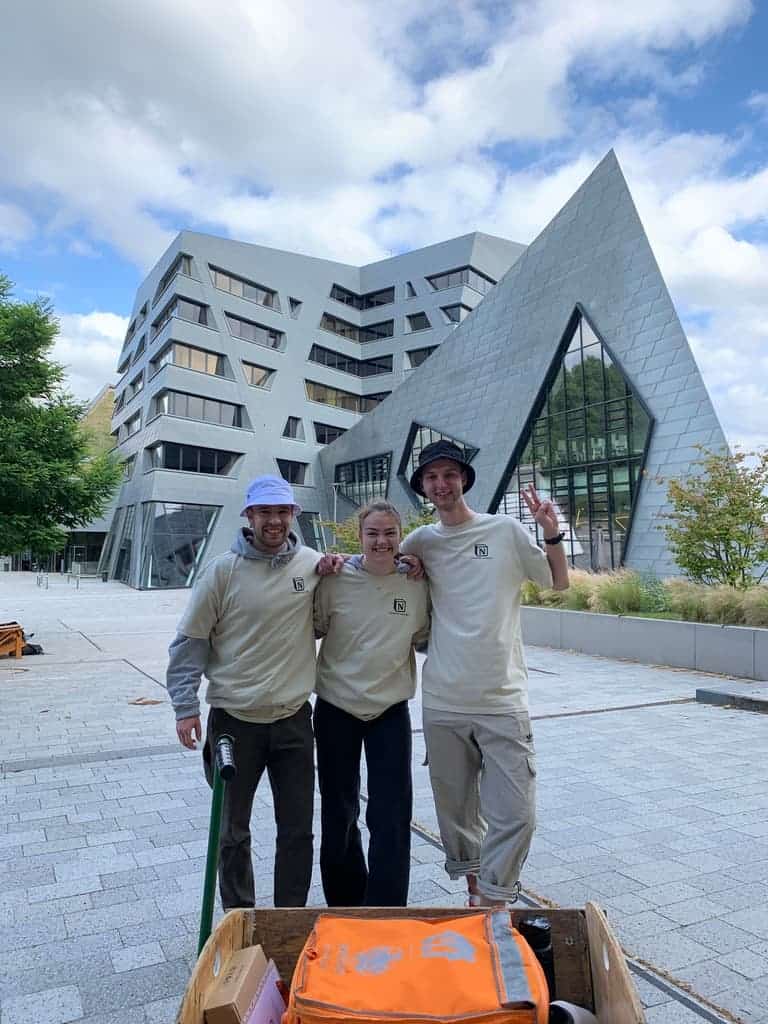
I also gained my first change management experience as a student assistant in a research lab.
I was incredibly lucky: the professor was already using Notion, but the rest of the team hadn’t adopted it really.
Over the last few years, I actively shaped their workflows, making Notion their single source of truth (okay, there’s also Zotero and their Mail App, but…).
Research teams are often used to their inefficient practices, but my lab was up for new approaches, hoping to reduce the administrative work that consumes so much of a researcher’s and teacher’s time.
From there, even more opportunities arose to implement Notion for student initiatives and other research teams.
It was a cool job, but student contracts at universities really sucked!
Shaping the Culture and Finding My Place
When I started at MF Consulting, Matthias didn’t have much experience managing a team, especially an intern.
I don’t think he imagined keeping me on the team.
I was afraid myself that he would metaphorically end up changing my diapers instead of actually lightening his workload.
Jill and I occasionally talked about Matthias’s high workload and had quick Slack huddles, but it didn’t feel like a team at first.
We then introduced biweekly All-Hands Meetings. The first one was a bit awkward, but they became essential for staying sane.
I was used to working remotely, but I wasn’t used to being alone with no one around who understood the minute-by-minute cost of interrupted automations for large companies.
I felt isolated when things went wrong.
So, I requested weekly check-ins to feel understood, and Jill implemented a “technical questions” Slack channel, which is now used daily to discuss edge cases.
Today, we also have a daily Slackbot message from Michael Scott, who’s always asking us for our general mood and how our day was.
These simple changes made a significant difference.
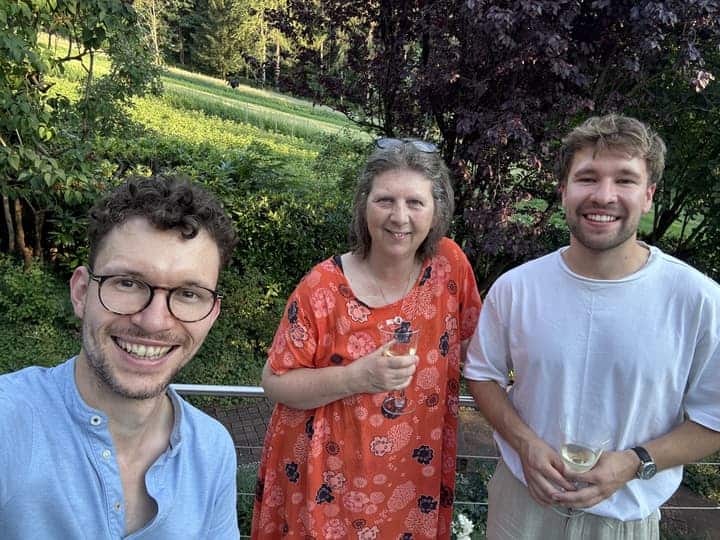
Whenever I felt “on the edge”, Matthias always said, “It’s totally okay if you don’t like developing automations; we’ll find you something else.”
I still don’t know if I love or hate it – it might be both.
I had devastating nights, but doing this as a team helped me get through the struggle.
Let me even say that I would have reduced my life expectancy by a couple of years if I had been left alone with this stress-inducing, high-stakes work.
Another burden, certainly for me, was just executing tasks without a direct communication channel or authority with the client.
This meant days waiting for Matthias to relay my request, receive an answer, and forward it back to me.
Also, receiving positive feedback from someone outside your team can feel very different and be incredibly motivating.
Simultaneously, this opens the door for direct critique. Wearing the hat of an intern or developer often means receiving more fragmented, less thought-through requests than a manager would.
Whether this is a matter of respect or something else, I could have done something about it and maintained stronger boundaries.
At the time, I was actually happy to be the main spokesperson, to be asked and valued for my expertise. All of that also felt really good.
However, I made a mental note to reconsider that in the future!
Growing Responsibilities and Skills
During these months, I explored various “departments” that obviously don’t exist yet. I started by cleaning up templates and writing SEO-optimized articles.
My first independent responsibility was tracking Notion updates and publishing them with optimized images. I quickly became proficient with tools like Snapshot, Canva, and Figma.
I also ventured onto LinkedIn, and given that one of my mere five posts at the time led to this internship, I felt encouraged to continue. Consistency is key, and while I fell short in that regard, I don’t regret it. Maybe another time!
I participated in LinkedIn workshops, redesigned a customer funnel, and answered some of Matthias’s messages when he was on “vacation”, which never sounded like a proper break for him.
I learned about sales and marketing.
For a month, we sent coconuts and socks with managers’ faces on them to our dream clients as an attention-grabber.
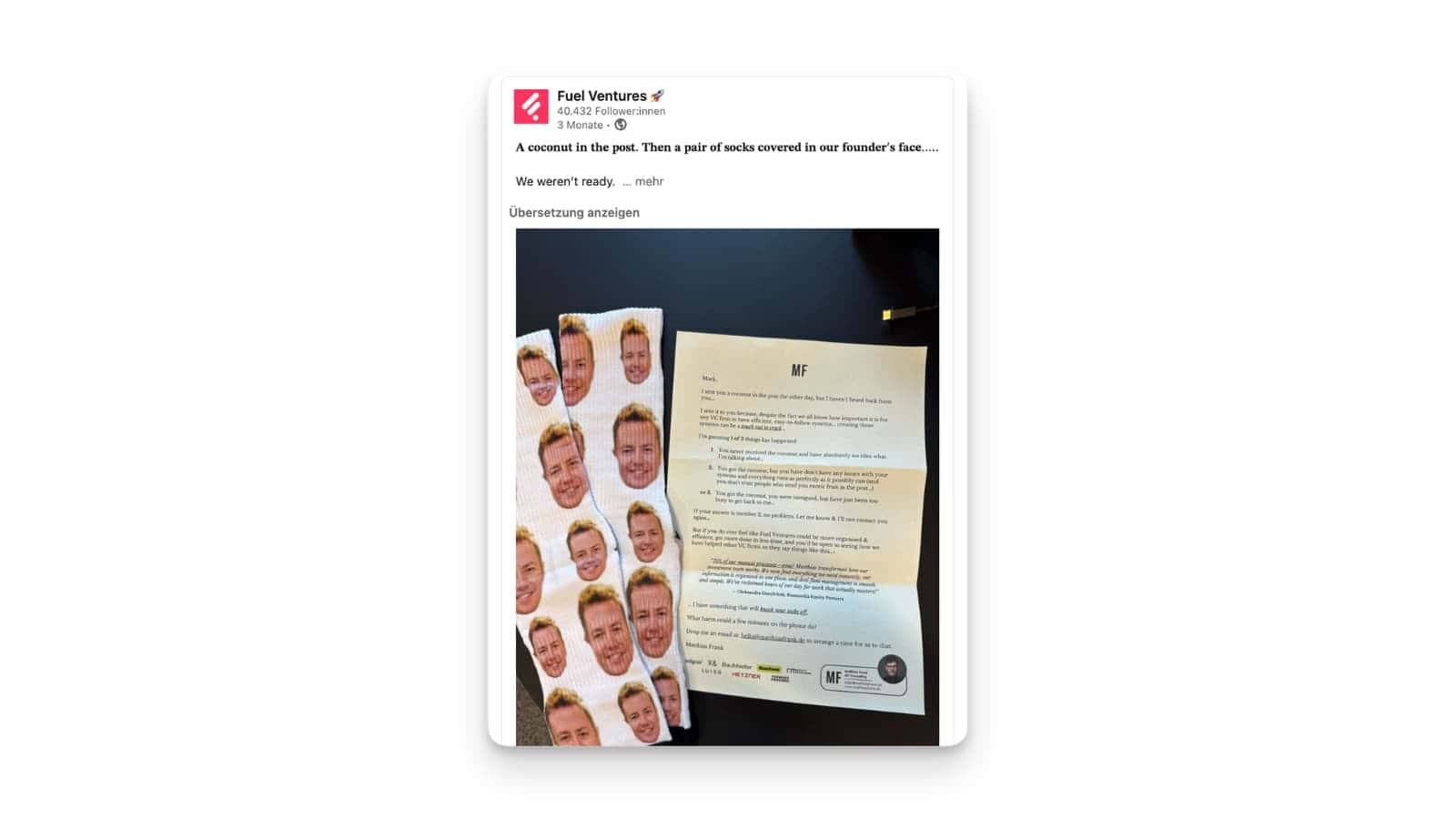
The ROI of this campaign was a single LinkedIn repost, but it was the highlight of my week, and I still smile thinking about it.
About three months in, I was assisting with fulfillment, specifically creating Notion templates and building automations. I was thrown into the deep end, and one of my first tasks was a two-way sync setup for contacts between Notion and Pipedrive.
I eventually got through it – underestimating the time by two to three weeks.
My balance changed when I became a project owner.
On one hand, I was honored to be trusted and to make decisions independently.
On the other hand, I became ten times more egocentric, believing I could (or should?) solve issues myself.
Since I was building in a live system, it was better to make structural changes at night.
It took me a while to understand that Jill didn’t mind getting a cry-for-help message so late. Matthias was an early bird and never worked too late at night.
One or two weeks of nightly, solitary bug-fixing made me feel like a sleep- and sunlight-deprived slave to error messages.
My balance was gone.
I was working nights and getting up “early” for a 10 AM client meeting, and since my Slack notification management was stupidly bad, the first thing I saw in the morning were the error messages from my automations that I thought I had fixed the night before.
I felt deep in a hole and made the mistake of not communicating it early.
This was during a time when Matthias was on vacation, and I wanted to prove he could trust his team and actually take some days off.
I also ended up working most weekends, but I told myself I was just trading that for many mornings and afternoons when I didn’t work except for holding meetings.
Looking back, this was poor thinking on my part.
I was actually working a lot more than I needed to, and during the intense weeks of night shifts, I probably lost a lot of my efficiency, focus, and, not to forget, my sanity.
People around me noticed this, and since no one understood what I was doing, how much it meant to me, and what a cool opportunity it was, I received many warnings: “You deserve to be paid more for this,” “You’ll burn out if you continue like that,” “You could be driving an ice cream van and get more money for that.”
I appreciate my friends’ and family’s cautious warnings, and they told me this at the right time, yet I also knew this was a self-imposed phase, and I literally provoked it.
In the end, I learned a lot about myself during those weeks, and from there, things only improved.
Perhaps, just perhaps, because I told Matthias I would not continue to work for him when I leave for my Master’s.
It was as abrupt as it sounds writing.
These 6 months flew by like it was just one month.
And until the last month, I didn’t think of an “end”.
Jumping from different roles, tasks, clients and responsibilities kept me in a never-ending dopamine rush.
Even building automations was kind of like a rollercoaster ride.
In the end, I became really confident with Make, but I also built in Relay.app and we explored N8N together as a team during our first off-site!
There is still “scary” stuff like Arrays, and so much trial and error naturally involved, but I would consider myself proficient.
I even have a personal CRM in Notion now and whenever someone books a meeting with me, he or she will be researched and dialed in to my database: LinkedIn, email, company, city.
All of that is created for me automatically.
I also automated 2-way-syncs for Hubspot, Pipedrive and Notion, I created Slack-Audio AI transcript and summary to Notion workflows, automated Meeting Briefing Mails in a nice HTML format based on clients calendar, I pulled Kit newsletter stats for automatically updating Notion charts, and many more.
I literally can’t stop thinking in modules and error handlers even in the most absurd contexts.
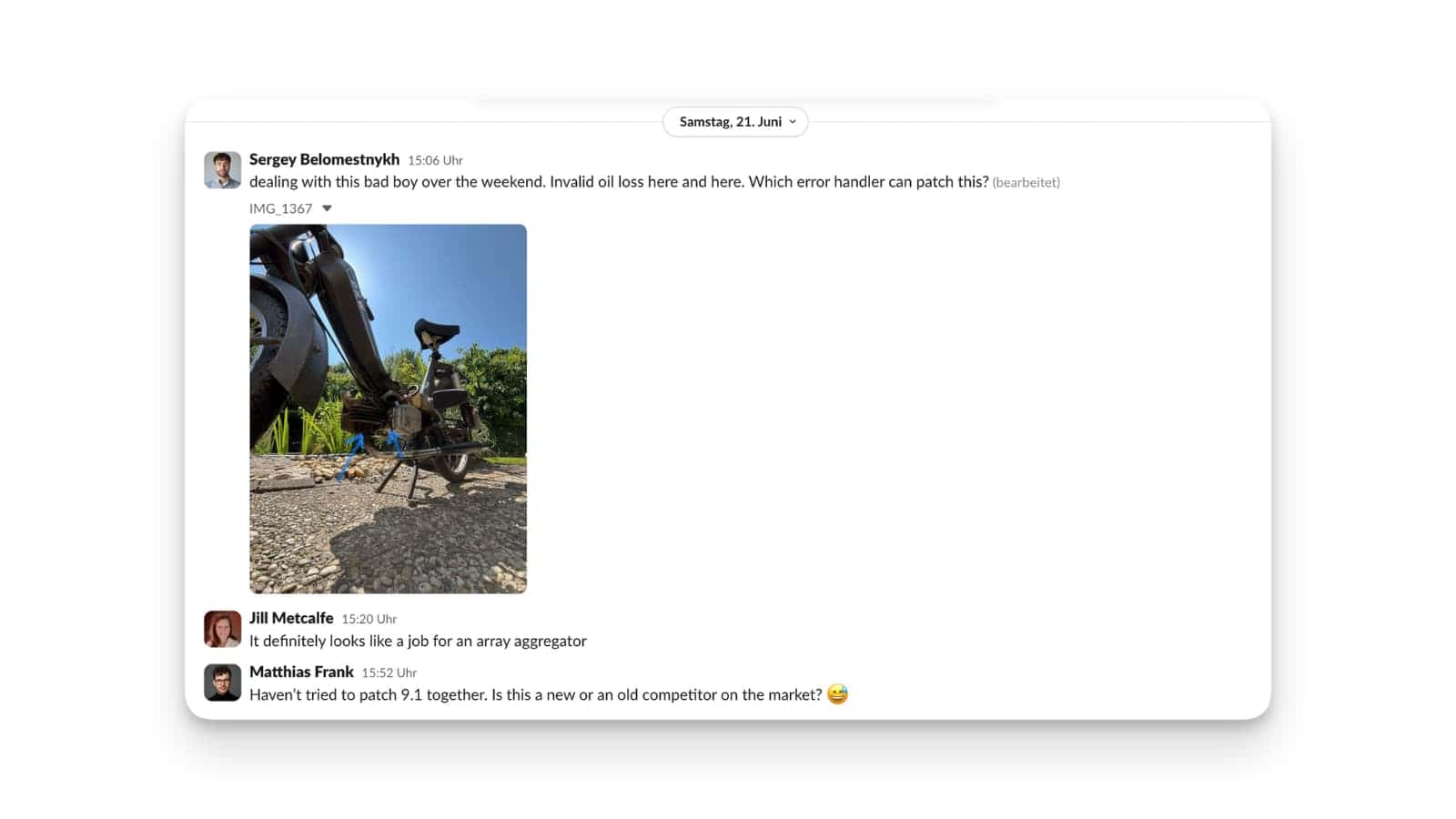
The Mission
I’m fascinated by AI’s potential for social and environmental good.
Reading Graeber’s “Bullshit Jobs” resonated with me, as I see MF Consulting eliminating exactly those inefficiencies.
Our Notion setups automate tedious tasks like calendar management and client research, freeing people to focus on meaningful work.
At Airbus, I witnessed how automation shifted craftsmen’s roles to monitoring robots – work that demanded constant vigilance but rarely did it require to take any action. This experience highlighted both the promise and challenges of technological advancement.
To me, AI shouldn’t be about replacing humans but enhancing our capabilities – helping us learn, think deeper, and use resources more efficiently.
For this vision to succeed, we need human-centered AI systems that prioritize people and sustainability.
At MF Consulting, we’re taking small steps in this direction, though we’re still navigating the financial pressures that limit our ability to serve pro bono clients.
In my ideal world, I’d work with teams that align with great initiatives and values, not just those with big-enough budgets.
Because this is where Notion shines: offering an affordable, scalable, and powerful alternative to the established management tools.
Notion has been my digital companion for years. While I question its “all-in-one workspace” claim, it’s undeniably versatile and a genuine skill I’ve refined during my time here.
Our consultancy recognizes Notion as the most accessible, customizable, and appropriately complex workspace available today.
Importantly though, we’re not Notion-bound.
It’s neither our product nor our unique selling proposition.
We’re platform-agnostic consultants who currently use Notion because it best serves both our clients’ needs and leverages our skillset and values.
As Notion Consultants, this is what we do in a nutshell:
- We find workarounds to mimic standard industry-specific workflows and streamline data from other apps to make Notion the single source-of-truth
- We manage user-permissions and break down complex company structures to help clients understand their core workflows
- We train employees and create customized, maintainable solutions collaboratively with our clients
- We deliver custom, cost-effective company platforms in weeks rather than the months or years typically required by traditional solutions
- We’re honest about Notion’s limitations, but I’ve never seen a client request our team couldn’t solve in some way
Despite Notion AI getting more powerful, this is not a profession that is at risk.
Our USP is not a Notion template (we actually build Notion company setups from scratch every single time), it’s more of a socio-technological translation training that customers are paying for.
And that’s actually not far away from my Psychology background and research interest in technology and AI.
The Final Answer
Question: Would Matthias have liked me to stay in the team?
Answer: Without a doubt!
Question: Would I enjoy continuing to work with Matthias despite the challenges I faced?
Answer: I’d stay because of the challenges!
Question: Would I have the chance to make a living from that?
Answer: Almost certainly. I joined MF Consulting with minimal relevant experience, but I’m leaving with all the skills and knowledge needed to fulfill the job description. I understand the work environment, the quirks, and have built strong relationships with our clients and with the team.
Question: Could I manage to work alongside my studies for a startup-like consultancy?
Answer: The final answer, sadly, is no. I decided to put my studies first, even though this field and the consultancy don’t care about my degree. I don’t just study for the degree. After all, my psychology bachelor’s brought me here, completely unrelated and unforeseen, and I want to explore a little longer. I am grateful to stay connected with the ambitious team and look forward to MF Consulting becoming the No.1 Notion Consultancy in Europe. Thanks Matthias and Jill. It was a blast 🙂
Curious to learn more about our consultancy, team and the work we do? Make sure to join the newsletter for more behind-the-scenes content.

